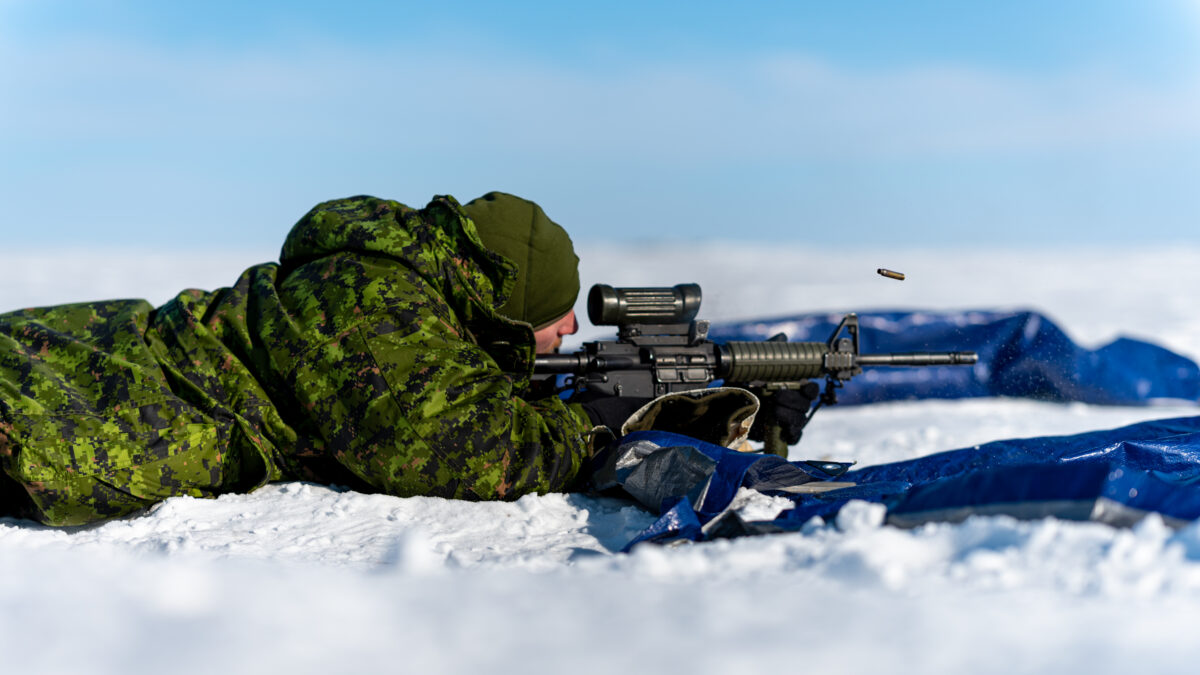Canada’s Senate Committee on National Security, Defence, and Veterans Affairs released a report on June 28, 2023, stating that Canada’s Northern region is militarily vulnerable, economically underdeveloped, and facing climate change threats. The report, titled “Arctic Security Under Threat: Pressing Needs in a Changing Geopolitical and Environmental Landscape,” examines security and defense concerns in the Canadian Arctic. It represents the culmination of over a year’s work, involving visits to the Arctic Circle and NORAD headquarters.
The report highlights Russia as an ongoing Arctic threat. Over the past decade, several Cold War-era military bases in the Russian Arctic have been reopened or reconstructed, with more than ten of them currently operational. Russia’s military capabilities in the region remain formidable.
China is also emerging as a player in the North, having declared itself a “Near Arctic State” in a policy document issued in 2018. With the Arctic Ocean becoming more navigable due to climate change, China’s ambitions to exploit Arctic resources could clash with Canadian sovereignty and interests. In February 2023, a Chinese surveillance balloon entered Yukon through the Arctic. The closest Canadian jets were unable to respond due to adverse weather conditions, but an American jet intercepted and neutralized the balloon.
In contrast, Canada’s defense infrastructure in the Arctic is severely deficient. For instance, senators visited a NORAD forward operating location in Inuvik, Northwest Territories, which can barely accommodate CF-18 jets and is unusable during certain times of the year. The Canadian Armed Forces members, who serve in the Arctic with admirable dedication, professionalism, and resourcefulness, deserve better. The entire Canadian population deserves better.
“We can no longer ignore the threats to our sovereignty. Foreign powers are already testing our resolve, whether in the air through spy balloons or on the water through monitoring buoys. We are too dependent on the United States for Arctic defence — we must live up to our responsibilities as a northern country,” underscored Senator Pierre-Hugues Boisvenu, member of the Subcommittee on Agenda and Procedure.
Moreover, Canada’s civilian and industrial infrastructure in the Arctic is strained. Inadequate housing, limited internet connectivity, and food insecurity persist in the North, while its resources, including abundant natural gas and essential rare earth elements for cell phones and clean technology, remain largely untapped. This hampers economic development that could revitalize northern communities. The Canadian Arctic accounts for 40% of Canada’s land mass and 75% of its coastline. However, it is home to less than 1% of the country’s population, with the majority being Inuit. Indigenous peoples make up more than half of the inhabitants in the three territories.
“The Canadian Arctic has vast untapped economic potential but without the infrastructure to access and transport its resources, we are leaving enormous wealth in the ground. If we do not start to make use of resources that the world needs, it will not be long before other countries seek to exploit them,” commented Senator Jean-Guy Dagenais, Deputy Chair of the Committee.
Despite these well-documented challenges and years of federal inaction, the committee commends the resilience, determination, and resourcefulness demonstrated by northern residents. Inuit communities, in particular, have endured the consequences of cruel Cold War-era policies that scattered them across the Arctic in the name of Canadian sovereignty. However, they have made significant contributions to Canada, whether as vigilant members of the Canadian Rangers or through the technical expertise of the Inuit-led Nasittuq Corporation, which operates and maintains the North Warning System.
“The Arctic faces many imminent threats: from climate change, ageing defence infrastructure and rapidly growing geopolitical competition, but it is also home to strong and innovative people — Indigenous peoples, our defence forces, and Canadian Rangers — all doing remarkable things with very little. They are on the front line of a battle for the future — with the right resources, I am confident that the grave challenges facing Canada’s North can be overcome,” highlighted Senator Tony Dean, Chair of the Committee.
The Arctic stands at a critical juncture. The world’s demand for northern resources is growing, and its residents are determined to prosper. To safeguard this profoundly significant and strategically valuable part of Canada, the federal government must listen to and support the North. Failure to do so will keep it in a state of jeopardy.
“The Arctic is my home. When the committee travelled to Tuktoyaktuk, I showed them where houses once stood that had to be moved because our Arctic coastline is eroding. The situation is beyond urgent — it is desperate. Canada has taken so much from us in the name of Arctic sovereignty. Without concrete action now, I fear what may come,” said Senator Dawn Anderson, member of the Subcommittee on Agenda and Procedure.

